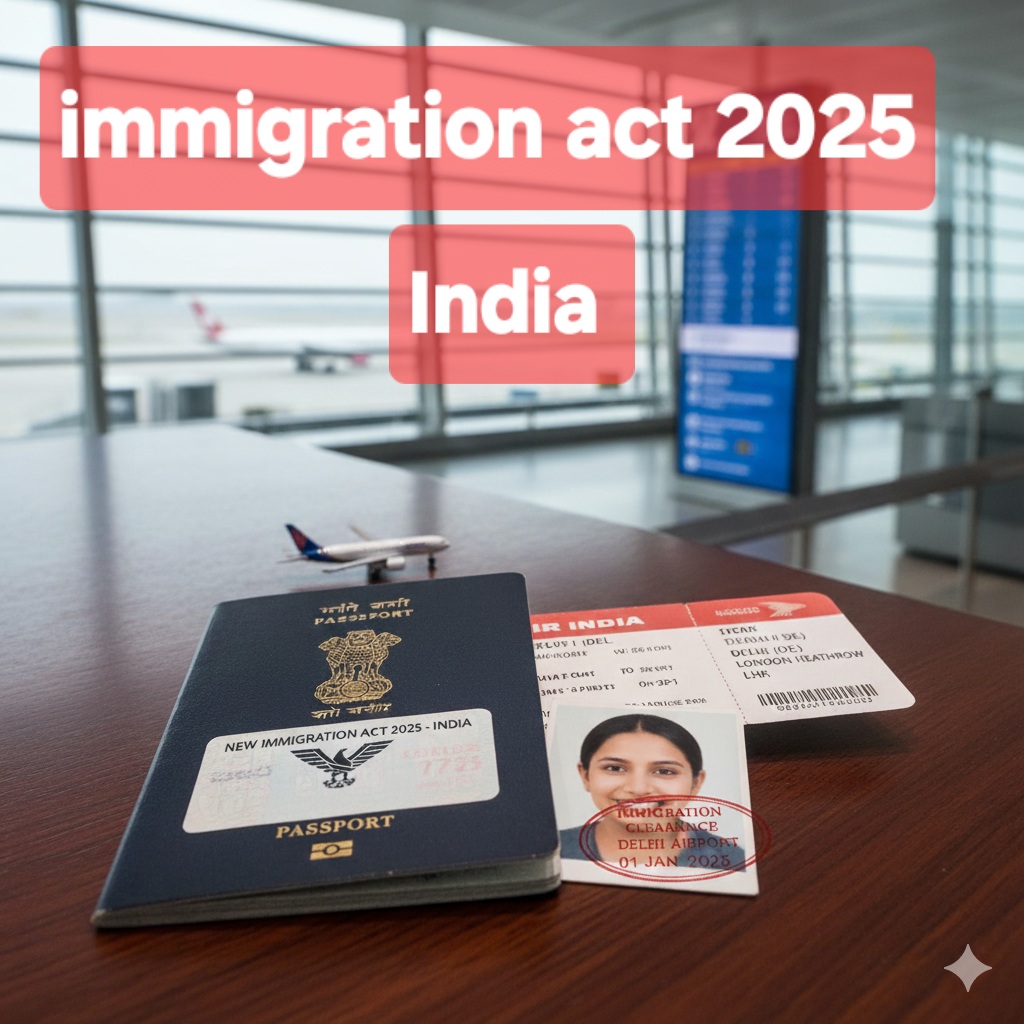The Immigration and Foreigners Bill 2025: Key Provisions, Impacts & Analysis. India is planning a big change in its immigration system. On March 11, 2025, the central government introduced the Immigration and Foreigners Bill, 2025 in the Lok Sabha.
This new law aims to modernize and simplify the rules for foreigners coming to India. It will replace four old laws from the pre-independence period, including the Foreigners Act of 1946 and the Passport (Entry into India) Act of 1920.
Important note ‘s
- The Immigration and Foreigners Bill, 2025 was introduced in Lok Sabha on March 11, 2025. It seeks to regulate immigration, entry, and stay of foreigners in India. It repeals the following Acts: (i) the Passport (Entry into India) Act, 1920, (ii) the Registration of Foreigners Act, 1939, (iii) the Foreigners Act, 1946, and (iv) the Immigration (Carriers’ Liability) Act, 2000. Key features of the Bill include:
- Immigration: The 1920 Act empowers the central government to frame rules requiring persons entering India to possess passports. The Bill provides that persons entering or departing from India must also have a valid visa (for foreigners) along with valid passports or other valid travel documents. These documents may be examined by the immigration officer. The Bill empowers the central government to notify designated immigration posts for entry into and exit from India. These posts will be manned by immigration officers or other specified officers. The Bill provides for setting up of the Bureau of Immigration for performing immigration functions and other prescribed functions. Immigration functions include: (i) visa issuance and regulation of entry into India, or (ii) transit, stay and movement within and exit from India. The Commissioner of the Bureau, appointed by the central government, will supervise immigration and other prescribed functions.
- Registration of foreigners: The 1939 Act empowers the central government to make rules for foreigners to report their presence to a prescribed authority. The Bill provides that on arrival in India, foreigners must register with a Registration Officer.
- Obligations of persons/entities to provide prescribed information: The 1946 Act places obligations on masters of vessels/pilots of aircrafts transporting passengers/crew to furnish prescribed information regarding foreigners onboard. Hotel keepers providing accommodation to foreigners shall also furnish such information. The Bill requires carriers landing or embarking in India to furnish information of crew/passengers on board to a civil authority or immigration officer. The Bill adds that educational institutions must provide prescribed information to the Registration Officer on admitting foreigners. Further, medical institutions must provide information regarding foreign patients availing indoor treatment or their attendants availing lodging facilities to the Registration Officer.
- Carriers: The 2000 Act defines carrier as any person or association of persons engaged in the business of transporting passengers by water or air. The Bill expands the definition to include transportation of passengers and cargo by air, water, or, land through aircraft, ship, or any other mode of transport. The Bill also prohibits aircrafts/vessels/any other mode of transport departing from India until a clearance has been obtained from the Immigration Officer. This clearance will be granted on submitting a prescribed general declaration.
- Offences and penalties: All four Acts provide for imposition of penalties upon contravention of various provisions. The Bill seeks to change the penalty for certain offences. For instance, under the 1920 Act, entering without valid passports is punishable with imprisonment of up to five years, fine up to Rs 50,000 or both. The Bill penalises foreigners entering without valid passport or other travel documents with imprisonment of up to five years, fine up to five lakh rupees, or both.
- Power of arrest: The 1920 Act empowers any police officer, not below the rank of sub-inspector, and any officer of the Customs Department, to arrest without warrant persons entering India without passports. The Bill empowers police officers not below the rank of a Head Constable to arrest without warrant.
Lorem ipsum dolor sit amet, consectetur adipiscing elit. Ut elit tellus, luctus nec ullamcorper mattis, pulvinar dapibus leo.




**mindvault**
mindvault is a premium cognitive support formula created for adults 45+. It’s thoughtfully designed to help maintain clear thinking
Thanks for every other excellent post. The place else may just anybody get that type of info in such a perfect way of writing? I’ve a presentation next week, and I’m at the look for such info.
**breathe**
breathe is a plant-powered tincture crafted to promote lung performance and enhance your breathing quality.
I went over this site and I think you have a lot of superb information, saved to favorites (:.
Một điểm đặc biệt của 66b club là khả năng tùy biến giao diện theo từng thị trường địa phương. Người chơi Việt Nam sẽ được trải nghiệm phiên bản hoàn toàn Việt hóa, từ ngôn ngữ đến phương thức thanh toán quen thuộc như Momo, ViettelPay hay chuyển khoản ngân hàng nội địa.